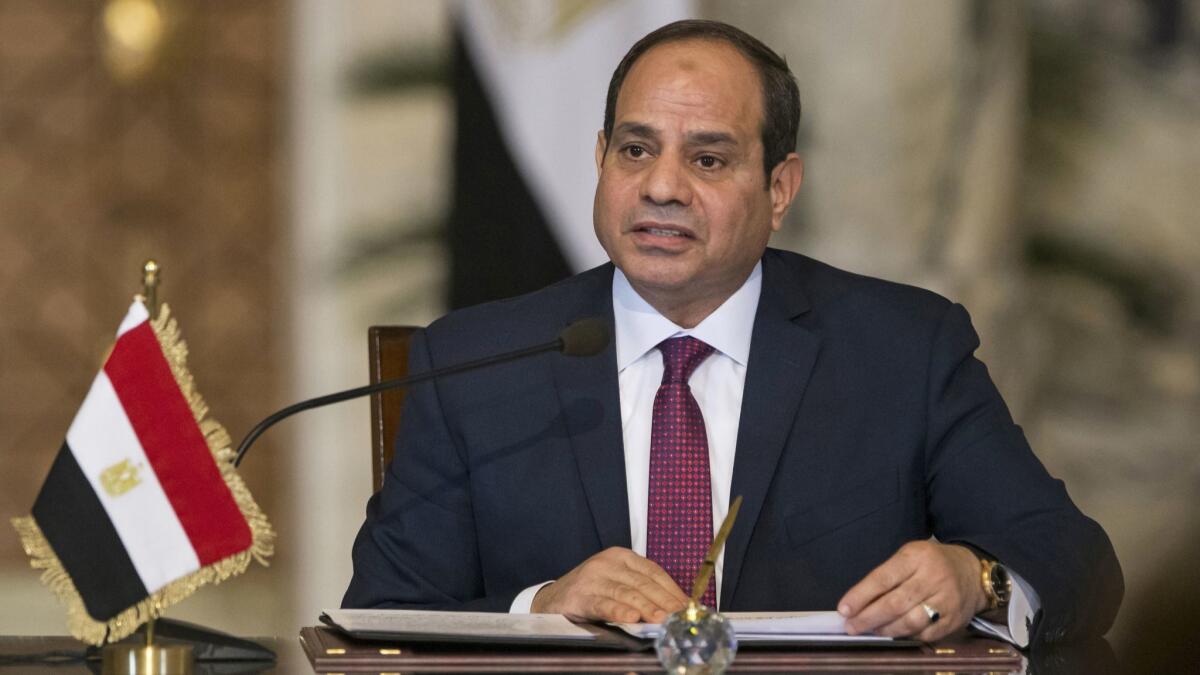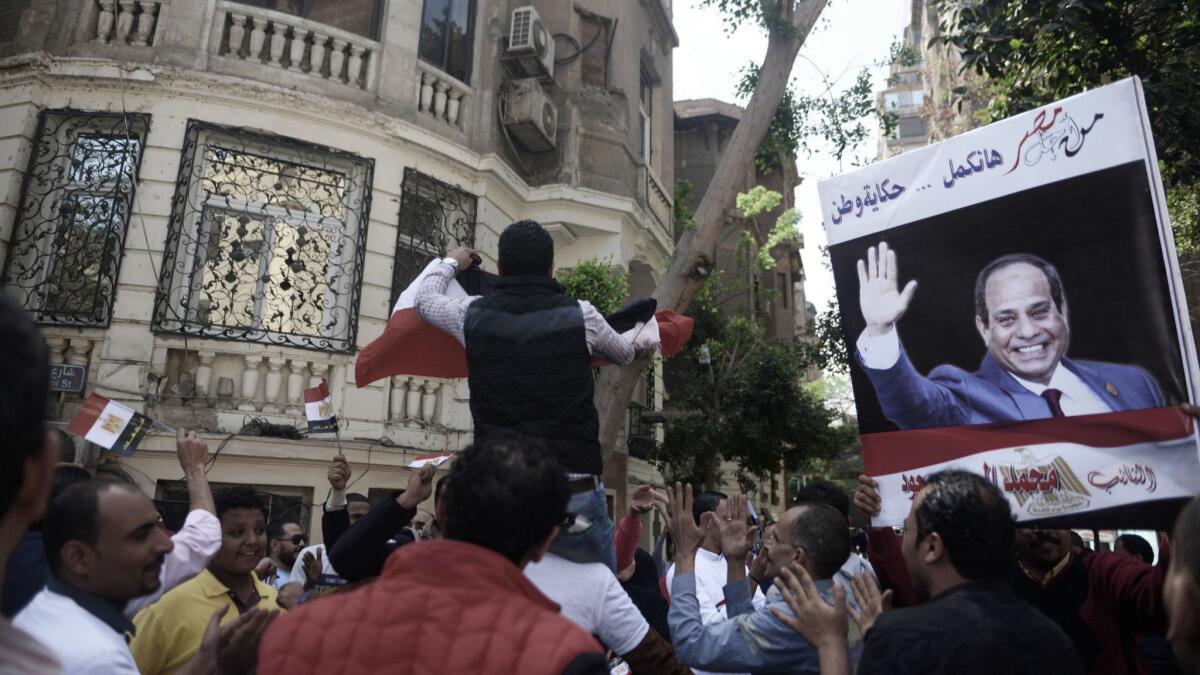Term limits? Egypt’s Sisi may have found a way around that roadblock

- Share via
Reporting from Cairo — Egyptian President Abdel Fattah Sisi was reelected in March by 97% of the vote to his second and final term in office — or so it seemed final at the time.
Now there’s a move underway to ensure that it was not Sisi’s last term.
A court in Cairo agreed earlier this month to consider a petition demanding that Egypt’s parliament consider scrapping a two-term limit for the presidency, a change which requires a constitutional amendment. That would allow the authoritarian Sisi to run for at least a third four-year term in 2022.
The petition was filed by lawyer Ayman Abdel-Hakim Ramadan, a supporter of the president, along with five other lawyers. They argued that eight years is insufficient for Sisi to tackle the country’s economic and security challenges, and that the term limits are therefore “unfair to the great Egyptian people.”
A hearing on the matter had been scheduled for Sunday at the Court of Urgent Matters, and dozens of Egyptians stood outside the court holding large pictures of Sisi and chanting in support of amending Article 140 of the constitution on term limits. Ultimately, the hearing was postponed until Jan. 20.
“The main reason behind us taking this step is our love for the president,” said Ramadan, speaking the next day. “We really believe in him.”
Observers have long suspected that Sisi intends to stay in power beyond this term, and that his allies would push to allow it, though the president insisted last year that he wasn’t interested in a third term.
“The court case is the latest signal that the notion of amending the present law on presidential limits is being considered very seriously,” said H.A. Hellyer, an Egypt expert at the Royal United Services Institute, a London-based think tank.
“The case itself doesn’t change anything -- there still has to be a proposal in parliament -- but it does indicate a continued effort,” he added.
The Court of Urgent Matters is known for being a friendly venue for Sisi, who led the military ouster of Mohamed Morsi in 2013, just a year after the Muslim Brotherhood leader became Egypt’s first democratically elected president. Sisi himself became president in 2014.
As part of Sisi’s crackdown on dissent and opposition, the court banned the Muslim Brotherhood, as well as the pro-democracy 6th of April Youth Movement Group and the hardcore soccer fans known as the Ultras – all of whom were prominent in the uprising that toppled autocratic President Hosni Mubarak in 2011.
In 2016 and 2017, it ruled twice in favor of a controversial government plan to cede control of two Red Sea islands to Saudi Arabia – an agreement that sparked rare street protests against Sisi.
If the constitutional article on presidential terms is to change, it requires the approval of both parliament, which is brimming with Sisi supporters, and the public, via a referendum.
Ramadan, who filed the petition, said he is confident that the public would vote overwhelmingly in favor of it. “We believe at least 95% of the population will agree on the amendments to let Sisi stay on for more terms,” he said.
For Sisi’s critics, this is just another example of the government reversing gains made by the overthrow of Mubarak during the Arab Spring protests. The term limits, set out in the constitution of 2014 and ratified by a public referendum months before Sisi became president, were supposed to prevent a repeat of Mubarak’s nearly 30-year dictatorship.
Rights groups say Sisi’s presidency has been marked by repression more severe than even under Mubarak.
Sisi will use the referendum to claim it’s the will of the people, said activist Mohamed Zaree of the Cairo Institute for Human Rights Studies, “but actually in Egypt there is no will of the people, there is only the will of Sisi.”
Islam is a special correspondent.
ALSO:
The Grand Egyptian Museum will be just that, especially in size, cost and ambition
The human rights situation in Egypt is getting worse. Could withholding American military aid help?

More to Read
Sign up for Essential California
The most important California stories and recommendations in your inbox every morning.
You may occasionally receive promotional content from the Los Angeles Times.












